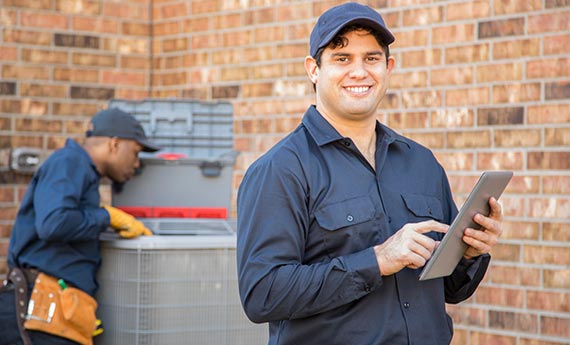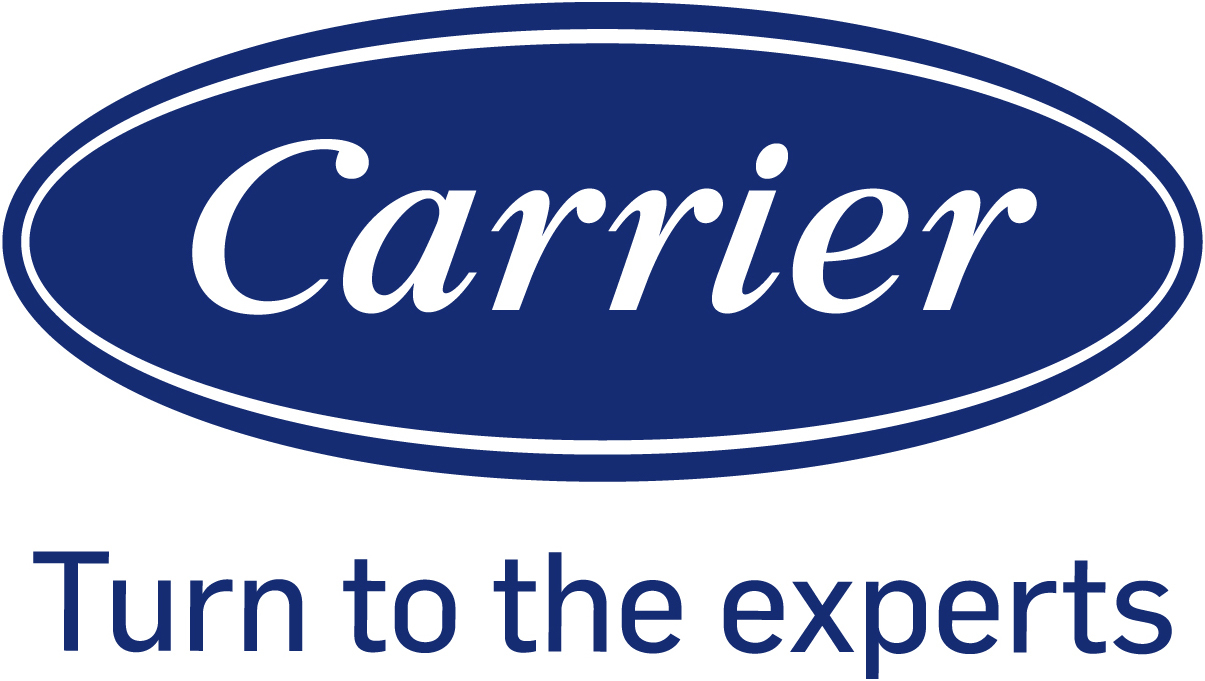Your home may have experienced power outages before, even some scheduled by your utility company. While outages rarely happen, it can definitely be inconvenient having to to wait for the power to be restored. Depending on the type of power outage, you may need an electrical repair technician to take a look at your system to check for and repair any damages.

When the power’s restored in your area, the first thing you’ll probably do is get your HVAC system and thermostat running again to bring your home’s interior temperature back to a comfortable level. However, you should be aware that your neighborhood will also be doing the same thing. This can lead to an overload of the power grid and cause another power outage!
No matter the weather or season, you need to ensure that your appliances and electrical equipment are still safe and working as they should after a power outage, especially your HVAC system and thermostat. Here’s what trusted HVAC replacement contractor Broom Heating & Air Conditioning has to say:
Why You Need to Reset Your Unit
It’s easy to switch the thermostat back on or switch the breaker back to the “on” position right away to keep your home comfortable, but if you don’t take the necessary precautionary steps before turning your systems back on, you could end up with costly repairs. For instance, turning your circuit breaker off and on without giving it time to rid itself of the power surge can cause unwanted damage to your home’s electrical system.
If you turn your thermostat to the “on” or “cool” position, it will tell your HVAC system to run as soon as you turn on your circuit breaker again. This isn’t helpful when the circuit breaker is trying to reset, and it can cause damage to your unit that will need to be repaired by a professional technician.
Possible Causes
Understanding what can trigger a power outage is important when troubleshooting your HVAC system and thermostat. Most of the causes are usually beyond your control, but knowing what to expect can be crucial in case of an emergency. Depending on the situation, you may be able to troubleshoot the system yourself, or you might need the help of a trusted electrical repair technician.
- Severe weather – This is undoubtedly one of the most common causes of blackouts. When there’s severe weather, there are several factors that can cause a power outage. For instance, a lightning strike can bring down a tree that then knocks down power lines.
- Equipment failure – Extreme heat or cold can severely damage components of your area’s power grid. Exposure to natural elements and faulty equipment can also cause transformers to fail, wires to corrode or both. If your equipment isn’t working properly, this can result in a power outage in the area.
- Natural disasters – In addition to severe weather, natural disasters such as earthquakes, floods, mudslides and wildfires can cause power outages as well. Such major events can knock down power lines, damage transformers and even cause damage to substations.
- Wildlife – Small animals and other wildlife can also cause power outages. Squirrels, birds and other small animals can knock over HVAC components while foraging for food, chew through power lines or short-circuit connections while building nests. Barriers are usually placed between wildlife and electrical equipment, but the warmth and hum of flowing electricity often attracts certain animals.
- Overloaded system – When you have too many appliances and other electrical equipment running at the same time, this can overload your system and cause a power outage in your own home. Outages can also occur in some areas during times of unusually high power demand, which can overburden electric cables, transformers and other electrical equipment.
Before You Start
Every professional HVAC replacement contractor should know that it’s important to check the electrical system first, even if it’s not visibly damaged. This includes inspecting your thermostat’s fuses, so you’ll need to remove the front panel and check for blown fuses. This is a common cause behind thermostats not working after a power outage, but fuses can be replaced. Once that’s done, you can proceed to restart the HVAC system via your thermostat. First make sure that they’re completely off before you start!
Resetting Your HVAC and Thermostat
You’ll need to ensure that your circuit breaker is intact. When there’s a power outage, some switches may flip to prevent damage to your home’s electrical equipment. Just flip each switch at your circuit breaker to “off” to start the reset, then after about a minute, flip them back to the “on” position.
Your HVAC system and thermostat should still be set to “off” at this point. Wait for about 30 minutes for your unit to reset, then turn it on with the thermostat. While waiting, you can check if your other appliances and electrical equipment are still working after the power outage.
Your system should turn back on successfully if there was no damage sustained during the power outage. If it doesn’t turn on for some reason, have it looked at by trusted electrical and HVAC specialists for a more thorough inspection.
Protecting Your Unit From Electrical Damage
After a successful reset, your air conditioner and thermostat should be working properly. You won’t even need to call a professional after a power outage so long as you follow the previously-stated instructions. You’ll still need to do a thorough check of your AC unit, however, to ensure that it wasn’t damaged during the outage. If you notice any of the following signs, you should call your trusted technician as soon as possible.
Uneven or no cold air coming from the unit – If you feel that your HVAC system isn’t blowing enough cold air around your house, then there’s a chance that it could have been damaged by the power outage. In most cases, there’s no need to worry about paying for a full replacement. However, if the repair costs will be more than half of the cost of installing a new HVAC system, then replacing it may be more cost effective for you in the long run.
Weak output – Even if you correctly perform the steps necessary to reset your HVAC system and thermostat, you may notice that the air coming from your vents isn’t as strong as before the power outage. While this could be due to a lower fan setting on your thermostat, if this isn’t the case, it could also be caused by a loose fan belt or even a fried motor from the power outage. Either way, you’ll need to call in a professional to address the issue.
When looking for trusted HVAC specialists to check out your system, Broom Heating & Air Conditioning has got you covered! Give us a call at (803) 754-5466 to learn more about our products and services. You can also contact us online for an appointment.

 Planned maintenance is key to making sure your heating and cooling system is in top shape at all times. A lot of property owners see it as merely added expense but it’s not! Think of a planned maintenance agreement as an investment into your investment. Your HVAC system plays a role in keeping your home or business comfortable and energy-efficient, after all, so it definitely pays to have one in place.
Planned maintenance is key to making sure your heating and cooling system is in top shape at all times. A lot of property owners see it as merely added expense but it’s not! Think of a planned maintenance agreement as an investment into your investment. Your HVAC system plays a role in keeping your home or business comfortable and energy-efficient, after all, so it definitely pays to have one in place.








